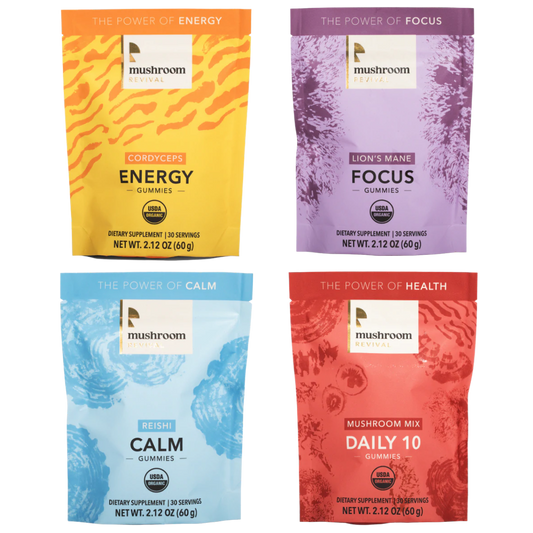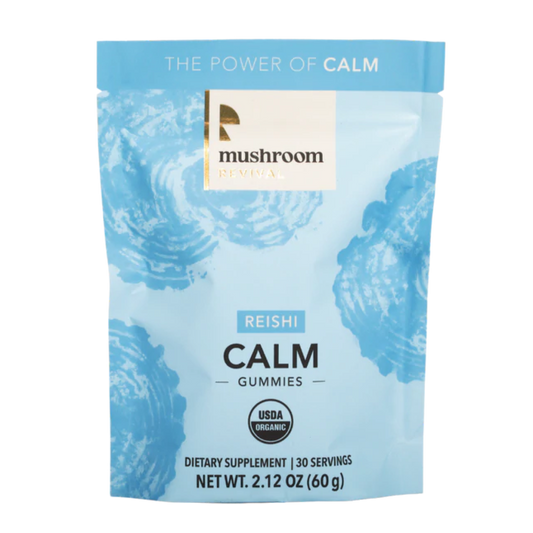Sourcing Mushrooms From China With Jennifer Dou From Forji
We owe homage to the East, especially China, for our knowledge of the mushroom space. Today, on the show, we are meeting with a fellow cultivator from Forij Mushrooms — Jennifer Dou.
And in this blog post, you’ll learn about our guest, the Chinese mushroom industry, and what to ask when looking for good mushroom products.
Podcast Topics
- About Jennifer Dou, Lead Mycologist and Production Manager at Forji
- Parallels in the lab between cell culture and mycology
- Mushroom culture in China
- The attitude toward the Shroom Boom in China
- Chinese mushroom technology
- The market economy of functional mushrooms
- Sinophobia in the world of mycology and functional supplements
- What does mushroom cultivation look like in China and where does the United States stand in comparison?
- How mushrooms shouldn’t be sourced by origin
- Asking the right questions to source mushrooms
- How Forji competes with China as a mushroom company
- Futuristic applications of mushrooms
- Chinese mushroom research papers
- Future of mushroom culture in China
Forji Mushrooms and Lead Mycologist, Jennifer Dou
About Forji Mushrooms
Jennifer Dou is the Lead Mycologist and Production Manager at Forji, a mushroom company that sells spawn substrates and grow kits. The business will soon offer nutraceuticals and mushroom skincare. Moreover, the company is based in Vancouver, British Columbia, Canada.
Dou’s Mushroom Background
Dou’s background offers a much-needed perspective in the mycology field. She specializes in cell and Chinese culture. Before starting her work at Forji, Dou worked as a lab manager and cloning technician at the University of Queensland in Australia. There she harvested bone marrow macrophages. Macrophages are “a type of white blood cell of the immune system” (6). After her friend invited her to run the science side of Forji, she discovered that fungal cells are similar to macrophages.
As a 1st generation Chinese-American, naturally, fungi played a potent role in Dou’s daily life growing up. She understood from an early age that using adaptogenic mushrooms was a way of life. She grew up taking reishi every morning. At first, she thought that herbal remedies were some sort of voodoo, but now after working with mushrooms she believes in both the science and traditional power of fungi. On the show, she shares information on Chinese mushroom culture.
Sinophobia With Chinese Mushrooms
Since the pandemic started, Asians have been facing hate crimes. The same goes in the mushroom space. The industry got rough with COVID alongside existing sinophobia. Sadly, many westerners believe that mushrooms from China are “dirty” or “toxic.” Chinese people are seen as a different culture with a different language — and they look different — so, it is assumed that what they’re producing is bad and shouldn’t be trusted.
It’s easy to get caught in the western political storm and believe in only one message: mushrooms from China are bad. Yet, the “west is best” mentality isn’t the wisest way to think. If people maintain that attitude, they may be missing out on some of the best quality and best priced functional mushrooms on the market. China deserves respect; as they have been a part of the global fungi economy for thousands of years — just like many other countries producing mushrooms.
So, as a whole, we ought to respect Chinese mushroom culture and appreciate their price points. If you’re more of a “be local, support local” person, then simply say, “be local, support local.” There is no need to put China down by saying their fungi industry is “dirty” or “ridden with heavy metals.” Instead, just say, “be local, support local.”
Many people think that mushrooms in China are ridden with heavy metals, pesticides, and other toxic things. And yes, there are farms like that in China. However, there are farms like that in other countries around the world too. Believing that mushrooms from China are bad is an uneducated and toxic way of thinking. In actuality, there are dirty farms that produce bad mushrooms everywhere. They are in America and in China. However, premium mushrooms are growing in both places too.
Don’t Blanket the Mushroom Industry
If people were to keep a Sinophobic mindset on the mushrooms in China, then they miss out on the culture’s unique mushroom species, advanced cultivation practices, fungal literature, history, and the science on the benefits of mushrooms. Racism narrows the mind and creates limits on the good things available in the world — like really good mushrooms.
Overall, we cannot blanket the mushroom industry by saying that one country’s mushrooms are all bad and another country’s are all good when it comes to mushroom cultivation.
Mushroom Cultivation
Surprisingly, heavy metals are not usually in mushrooms that are cultivated. They are found mostly in wild mushrooms. Plus, mushrooms with heavy metals exist worldwide — not just in China. People believe that mushroom cultivators in China are spraying pesticides and growing fungi in heavy metal runoff. Yet, again, these growing conditions exist worldwide.
Growing conditions for functional mushrooms also need to have favorable conditions to grow anyways. Mushrooms in general cannot grow well if there is contamination. So, the ones that do grow in toxic environments are not likely to produce good yields.
Ask the Right Questions to Find Good Mushrooms
It’s easy to look at a tag on a shirt and not buy it because it says, “Made in China.” It’s also easy to turn down a good mushroom product made in China. However, we owe respect to their substantial research on functional mushrooms. Rather than dubbing all mushroom goods from China as bad for sinophobic reasons, try asking the right questions that have nothing to do with the mushroom’s origin such as…
-
Are these mushrooms good for me?
-
Are they going to support my health and wellness?
-
Do they come from a trustworthy place?
-
What are the lab-test results?
Remember to check the company’s lab test results. Furthermore, being mindful of how we source our mushroom goods rather than where we source our mushroom goods will reduce the stigma of Chinese mushrooms in general.
Overall, it’s important to have good debates and conversations about this topic too. These will help to reduce the stigma that mushrooms from China are bad.
Chinese Mushroom Research
As mentioned before, China has extensive research history in the mushroom field. This means that they have a lot of scientific research. However, “Google is pretty much banned in China.” And research papers oftentimes require you to pay a fee to access them or the sites will require you to have a scientific license. Luckily, we have access to many research papers through Sci-Hub, which is a free online database of scientific papers.
Coincidentally, Mushroom Revival interviewed the creator of Sci-Hub. You can learn all about it by visiting “Sci-Hub: The Robin Hood of Science feat. Alexandra Elbakyan” to listen to the podcast and read the blog post about the platform. The site provides millions of scientific articles at no charge to scientists, doctors, and citizen scientists.
Whether you’re purchasing mushrooms to cook or grow kits to cultivate or supplements to eat — the origins of where you buy your mushrooms don’t matter. What’s important is understanding what is considered good in the fungi industry.
So, go out and source the best mushrooms for you. To learn more about Jennifer Dou and Forji — check out the podcast and resource links below!
Podcast Show Notes & Works Cited
- Forij Mushrooms Website: https://forij.life/
- Instagram: https://www.instagram.com/forijmushrooms/
- TikTok: https://www.tiktok.com/@forijmushrooms
- Podcast: Alex’s Trip to China. “International Functional Mushroom Conference China Recap.” https://www.mushroomrevival.com/blogs/podcast/international-functional-mushroom-conference-china-recap-episode-34
- Podcast: “Sci-Hub: The Robin Hood of Science feat. Alexandra Elbakyan.” https://www.mushroomrevival.com/blogs/podcast/sci-hub-the-robin-hood-of-science-feat-alexandra-elbakyan?_pos=1&_sid=42d3a2999&_ss=r
- https://en.wikipedia.org/wiki/Macrophage
DISCOVER OUR MUSHROOMS LEARN ABOUT OUR WORK





























